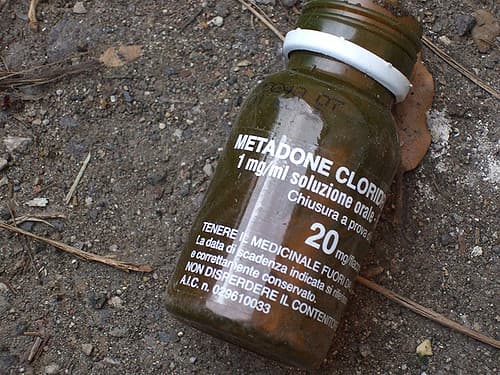Government agencies in Denver just announced a new strategy for treating drug addiction and reducing the number of people in jail.
Currently, Denver's drug court can order certain suspected drug users to get treatment for their addiction in the community, essentially getting probation instead of jail time. For opioid users, that often means taking methadone, the addiction treatment drug.
However, some people fail to follow the program and end up in jail anyway.
"This is for people who did not successfully do what they were supposed to be doing at drug court," said Simon Crittle, spokesman for the Denver Sheriff Department. "They can have a second go at getting onto methadone."
Under the new program, starting today, those people get a second chance.
If they agree to begin methadone treatment in the Denver County jail system, their sentences can be shortened to just a handful of days, typically from a Wednesday to the following Monday. They'll still be on probation and required to follow the program set forth by the drug court.
It's unclear exactly how long people would stay in jail without this second chance. Rob McCallum of the Colorado Judicial Department said that it depends on the arrangement the defendant had agreed to with the drug court.
In a news release, Mayor Michael Hancock described it as a "proactive approach" that would "open up access to treatment at the earliest possible time in order to help people recover and rebuild what addiction has taken away from them.”
This is a significant change for Denver.
The city is responding to the rapid and nationwide spread of opioid addiction in recent years, which the federal government describes as an epidemic.
As it worked before, you could typically get methadone in Denver jails only if you were already prescribed it before you entered jail. Otherwise, you had to wait until you left jail, which could be challenging, considering that methadone reduces withdrawal symptoms.
Starting methadone in jail may give people a better chance at recovery, Crittle said.
"If you’re doing this on the street, it’s much easier to be distracted by people and places," he said.
Defendants who agree to participate will sign a consent form with the court and be housed at the downtown detention center. Only two people per week will be allowed to participate.
Once they leave jail, participants will get a taxi voucher, and they're sent to Denver Addiction Research and Treatment Services, an outpatient facility, where treatment will continue.
"Probation will be monitoring them. They’ll be coming back to drug court," Crittle said.
The agencies involved include Denver Sheriff Department, Denver Human Services’ Office of Behavioral Health Strategies, Denver Health, Denver Adult Probation, Denver District Court. They will evaluate the program based on its effect on jail population levels, rates of compliance and other factors.













